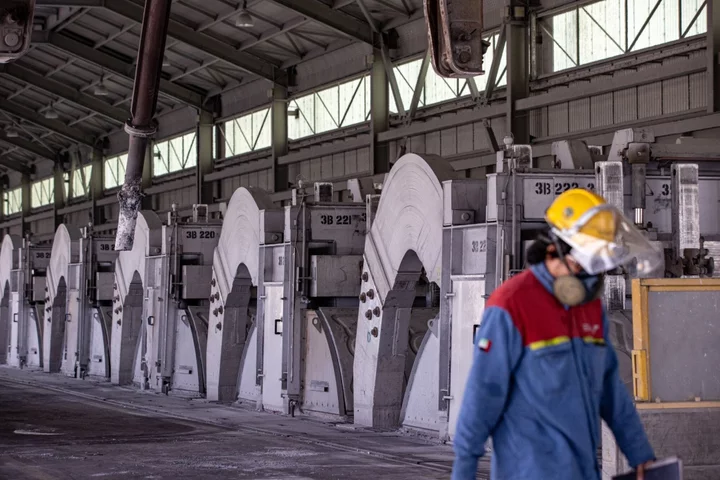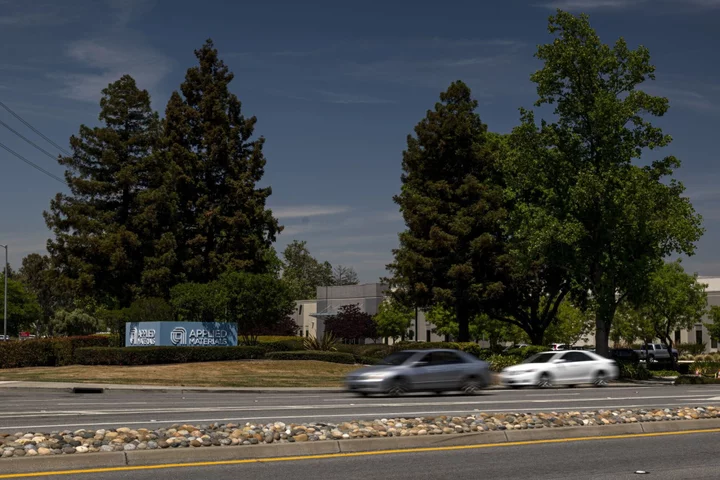NAIROBI, Kenya (AP) — Climate change is “relentlessly eating away” at Africa’s economic progress and it’s time to have a global conversation about a carbon tax on polluters, Kenya’s president declared Tuesday as the first Africa Climate Summit got underway.
“Those who produce the garbage refuse to pay their bills,” President William Ruto, a host of the summit, said to an audience that included senior officials from China, the United States and the European Union — some of the world's largest emitters of greenhouse gases.
The rapidly growing African continent of more than 1.3 billion people is losing 5% to 15% of its gross domestic product growth every year to the widespread impacts of climate change, according to Ruto. It's a source of deep frustration in the resource-rich region that contributes by far the least to global warming.
He and other leaders urged reforms to the global financial structures that have left African nations paying about five times more to borrow money than others, worsening the debt crisis for many. Africa has more than 30 of the world’s most indebted countries, Kenya’s Cabinet secretary for the environment, Soipan Tuya, said.
The U.S. government’s climate envoy, John Kerry, acknowledged the “acute, unfair debt.” He also said 17 of the world’s 20 countries most impacted by climate change are in Africa — while the world’s 20 richest nations, including his own, produce 80% of the world’s carbon emissions that are driving climate change.
Asked about the Kenyan president’s call for a carbon tax discussion, Kerry said President Joe Biden has “not yet embraced any particular carbon pricing mechanism.”
Ruto said Africa’s 54 countries “must go green fast before industrializing and not vice versa, unlike (richer nations) had the luxury to do.” Transforming Africa’s economy on a green trajectory “is the most feasible, just and efficient way to attain a net-zero world by 2050,” he said.
Climate finance is key, speakers said. A pledge by richer nations of $100 billion a year to help developing nations achieve their climate goals remains unfulfilled, and Ruto said the summit declaration will “firmly encourage” everyone to keep their promises.
The United Arab Emirates, which is hosting the next United Nations climate meeting later this year, announced it plans to invest $4.5 billion in Africa’s “clean energy potential.”
The African continent has 60% of the world’s renewable energy assets and more than 30% of the minerals key to renewable and low-carbon technologies. One goal of the summit is to transform the narrative around the continent from victim to assertive, wealthy partner.
“It’s becoming increasingly difficult to explain to our people, particularly to our youth, the contradiction: resource-rich continent and poor people,” Ethiopian President Sahle-Work Zewde said.
Africa’s GDP should be revalued for its assets, which include the world's second-largest rainforest and biodiversity, African Development Bank President Akinwumi Adesina said.
“Africa cannot be nature-rich and cash-poor,” he said.
But divisions are evident around the issue that was little mentioned in the opening speeches and yet is at the heart of the tough conversations ahead: fossil fuels.
Africa must use its natural gas resources — a growing interest of Europe — along with renewable energy sources, Adesina said. “Give us space to grow,” he said.
Ruto, however, has criticized the “addiction” to fossil fuels. His country now gets more than 90% of its energy from renewables.
“We don’t have to do what the developed countries did to power their industries. It will be harder to use renewable energy exclusively, but it can be done," said one local summit attendee, Martha Lusweti.
U.N. Secretary-General Antonio Guterres told the summit attendees that it’s time for the world to “break our addiction to fossil fuels.” Worldwide spending on fossil fuel subsidies reached $7 trillion in 2022, according to the International Monetary Fund.
European Commission President Ursula Von der Leyen said African nations could produce enough clean energy to power the continent and export abroad, “but for this, Africa needs massive investment.”
Some of Africa's biggest economies rely on fossil fuels. South Africa's coal-fired plants are struggling. Parts of Nigeria's Niger Delta are slick from oil extraction. Some of Africa's cities have the world's worst air pollution. A TotalEnergies pipeline project in Uganda and Tanzania is being challenged.
Missing from the summit were the leaders of a number of Africa's largest economies including South Africa, Nigeria and Egypt, as well as forest-rich Congo.
Also missing from the leading speakers was China, the world's largest emitter of heat-trapping gases, Africa's largest trading partner and one of its biggest creditors.
Some African leaders gave passionate descriptions of climate change's toll.
“The seas that once serenaded us with lullabies now warn of rising tides,” Sierra Leone's president, Julius Maada Bio, said. “It is an African story, and I daresay it’s a global story, too.”
___
Follow AP’s coverage of the climate at https://apnews.com/climate-and-environment and of Africa at https://apnews.com/hub/africa









